Discover the Women of the Hall
These are the Inductees of the National Women’s Hall of Fame. Select any of the women to discover their stories and learn how they have influenced other women and this country.
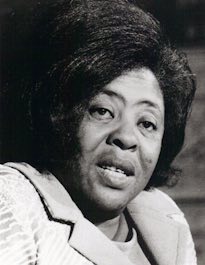 Fannie Lou Hamer
Humanities
1917
Mississippi
1993
Fannie Lou Hamer
Humanities
1917
Mississippi
1993

Fannie Lou Hamer
Mississippi sharecropper and organizer of the Mississippi Freedom Party, which challenged the white domination of the Democratic Party. Hamer succeeded in integrating the state delegation, and she was a tireless champion for poor minorities in her state and nationwide.
 Wilma Mankiller
Humanities
1945
Oklahoma
1993
Wilma Mankiller
Humanities
1945
Oklahoma
1993

Wilma Mankiller
First woman elected Principal Chief of the Cherokee Nation. As Chief, Mankiller brought about major economic and social improvements for her tribe, including better health care, economic development, and education.
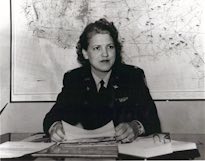 Jacqueline Cochran
Science
1906
1993
Jacqueline Cochran
Science
1906
1993

Jacqueline Cochran
First woman aviator to break the sound barrier. A leader and pilot, Cochran held many speed, distance and altitude records. She led the Women’s Air Force Service Pilots during World War II, becoming the first woman to pilot a bomber across the Atlantic Ocean.
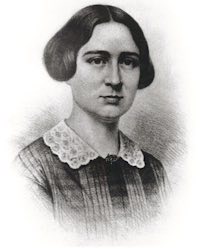 Antoinette Blackwell
Humanities
1825
New York
1993
Antoinette Blackwell
Humanities
1825
New York
1993

Antoinette Blackwell
First American woman ordained a minister by a recognized denomination (Congregational), despite great opposition to women in the ministry. Blackwell was a pastor, mother of seven children, and wrote many books and essays.
 Betty Friedan
Humanities
1921
Illinois
1993
Betty Friedan
Humanities
1921
Illinois
1993

Betty Friedan
Reshaped American attitudes toward women’s lives and rights through decades of social activism, strategic thinking and powerful writing. Her book The Feminine Mystique (1963) triggered the contemporary women’s movement. Her latest work is the best-selling The Fountain of Age.
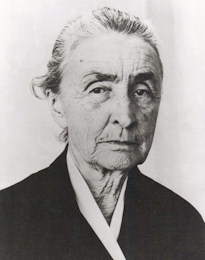 Georgia O'Keeffe
Arts
1887
Wisconsin
1993
Georgia O'Keeffe
Arts
1887
Wisconsin
1993

Georgia O'Keeffe
Artist and perhaps the best-known American woman painter. An American original in both her lifestyle and painting, O’Keeffe produced works of high energy and vision throughout her long life.
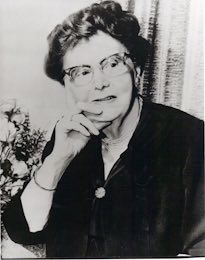 Ethel Percy Andrus
Humanities
1884
California
1993
Ethel Percy Andrus
Humanities
1884
California
1993

Ethel Percy Andrus
Founded the American Association of Retired Persons (AARP) to help older Americans cope effectively in their later years. Her organization, now 36 million members strong and a political lobbying force, helps with health insurance, career assistance and discounts for senior citizens.
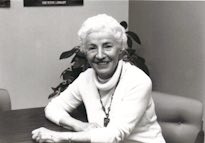 Ruth Colvin
Education
1916
Illinois
1993
Ruth Colvin
Education
1916
Illinois
1993

Ruth Colvin
Founder of the Literacy Volunteers of America, a group which she began in her upstate New York home. The organization has now taught nearly half a million people to read. Its unique approach, designed by Colvin, employs community tutors.
 Rosa Parks
Humanities
1913
Alabama
1993
Rosa Parks
Humanities
1913
Alabama
1993

Rosa Parks
Known as “the mother of the Civil Rights Movement,” when, in 1955, she refused to give up her seat on a public bus to a white man in Montgomery, Alabama. The event sparked the Montgomery bus boycott, the first major effort in the Civil Rights struggle.
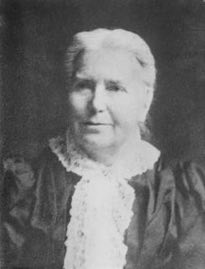 Emily Blackwell
Science
1826
England
1993
Emily Blackwell
Science
1826
England
1993

Emily Blackwell
Sister of Elizabeth Blackwell, was also a physician. Emily ran the infirmary for women and the medical college for women founded by her sister, providing excellent training for women in medicine.
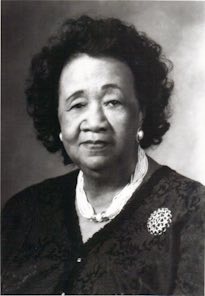 Dorothy Height
Education, Humanities
1912
Virginia
1993
Dorothy Height
Education, Humanities
1912
Virginia
1993

Dorothy Height
Began as a volunteer with the National Council of Negro Women. As its president and leader for forty years, she followed in the footsteps of her mentor, Mary McLeod Bethune. The NCNW represents organizations with more than four million members, works to create stong families as well as to assist young people and the needy.
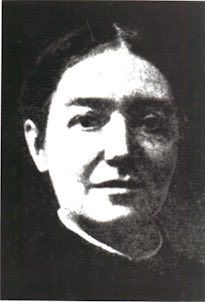 Mary Putnam Jacobi
Science
1842
1993
Mary Putnam Jacobi
Science
1842
1993

Mary Putnam Jacobi
Physician who founded the Association for the Advancement of Medical Education of Women. Jacobi was a leader in obtaining quality medical education for women.
 Gloria Steinem
Humanities
1934
Ohio
1993
Gloria Steinem
Humanities
1934
Ohio
1993

Gloria Steinem
Feminist leader, writer and social activist. A founder of Ms. Magazine, Steinem also co-convened the National Women’s Political Caucus and helped create the Ms. Foundation for Women. A best-selling author, her latest works are Revolution from Within: A Book of Self Esteem for Women and Moving Beyond Words.
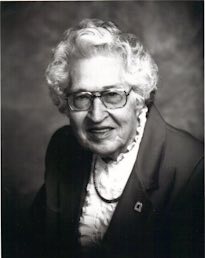 Helen Stephens
Athletics
1918
Missouri
1993
Helen Stephens
Athletics
1918
Missouri
1993

Helen Stephens
Athlete who set a world record and won two track and field gold medals at the 1936 Olympics. As an amateur, Stephens set Olympic, American and Canadian records in running, broad jump and discus. The small-town Missouri girl went on to become the first woman owner/manager of a women’s semiprofessional ball team and a lifetime sports advocate.
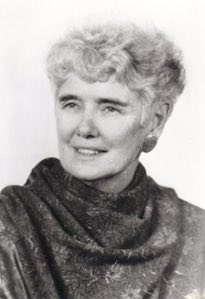 Elaine Roulet
Humanities
1930
1993
Elaine Roulet
Humanities
1930
1993

Elaine Roulet
Crusader for some of society’s most sharply disadvantaged, children of women in prison. A Sister of St. Joseph, Roulet has created many social reform and welfare organizations. She is best known for her work at the Bedford Hills Correction Center in New York, where she enabled mothers in prison to keep their babies for a year, a program now being patterned nationwide.
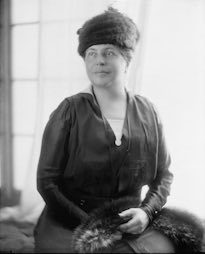 Lillian Wald
Science
1867
Ohio
1993
Lillian Wald
Science
1867
Ohio
1993

Lillian Wald
Nurse who organized the public health nursing service and the Henry Street Settlement in New York City to meet the needs of the urban poor. Wald created public health nursing services for many groups, and established the Public Health Nurses, known today as Visiting Nurse Service.
 Mae Jemison
Science
1956
1993
Mae Jemison
Science
1956
1993

Mae Jemison
Physician, engineer and astronaut. Jemison was the first African American woman astronaut in space, traveling on the Endeavor in 1992. Jemison today works on linking space age technology with developing nations and encouraging women and minorities to enter scientific fields.
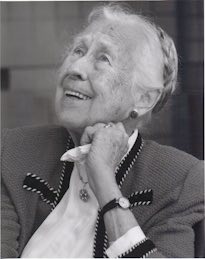 Esther Peterson
Humanities
1906
Utah
1993
Esther Peterson
Humanities
1906
Utah
1993

Esther Peterson
Catalyst for change in the labor, women’s and consumer movements. The driving force behind President Kennedy’s creation of the first Presidential Commission on Women in 1962, Peterson headed the Women’s Bureau in the Department of Labor. She also served Presidents Johnson and Carter, and served at the United Nations under President Clinton.
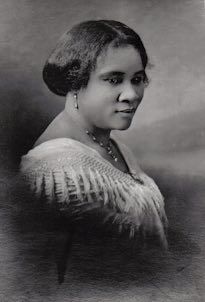 Madam C. J. Walker
Business
1867
Louisiana
1993
Madam C. J. Walker
Business
1867
Louisiana
1993

Madam C. J. Walker
Sara Breedlove, a Black entrepreneur considered the first African American woman to become a millionaire. She did this by devising a hair care and grooming system for African Americans and pioneered a door-to-door sales approach. The daughter of former slaves, Walker became an advocate for positive social change as well as a philanthropist.
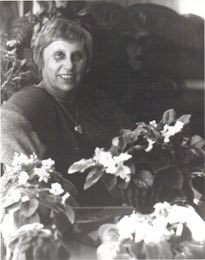 Ella Grasso
Government
1919
Connecticut
1993
Ella Grasso
Government
1919
Connecticut
1993

Ella Grasso
First woman elected a state governor in her own right. Grasso was elected Governor of Connecticut in 1974, serving until illness forced her retirement in 1980. She was also a Congresswoman and advocate for women, minorities and the elderly.
 Jeannette Rankin
Government
1880
Montana
1993
Jeannette Rankin
Government
1880
Montana
1993

Jeannette Rankin
First woman elected to the U.S. Congress. Rankin served two separate terms representing Montana, and was the only U.S. Representative to vote against America’s entry into both World Wars. A lifelong pacifist, she worked for peace until her death.
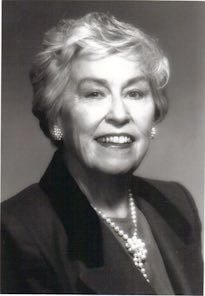 Martha Wright Griffiths
Government
1912
Missouri
1993
Martha Wright Griffiths
Government
1912
Missouri
1993

Martha Wright Griffiths
Congresswoman from Michigan 1955-1975, best known for successfully adding sex discrimination as a prohibited act in the 1964 Civil Rights Act. Griffiths also successfully led the Equal Rights Amendment passage in the House of Representatives.
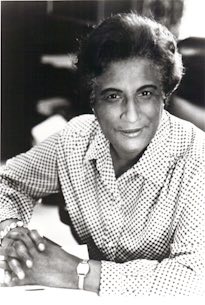 Constance Baker Motley
Government
1921
1993
Constance Baker Motley
Government
1921
1993

Constance Baker Motley
Attorney and jurist who, after performing landmark work with the NAACP with Thurgood Marshall and others, became the first African American woman elected to the New York State Senate. Motley was the first woman and African American to become Manhattan Borough President; she was the first African American women named to the federal bench.
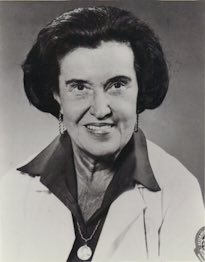 Rosalyn S. Yalow
Science
1921
New York
1993
Rosalyn S. Yalow
Science
1921
New York
1993

Rosalyn S. Yalow
First American woman trained in the U.S. to win the Nobel Prize for Medicine. Known for pioneering the use of radioisotopes to analyze physiological systems, Yalow made possible very detailed analysis of blood chemistry, saving lives and allowing for proper doses of medication.
